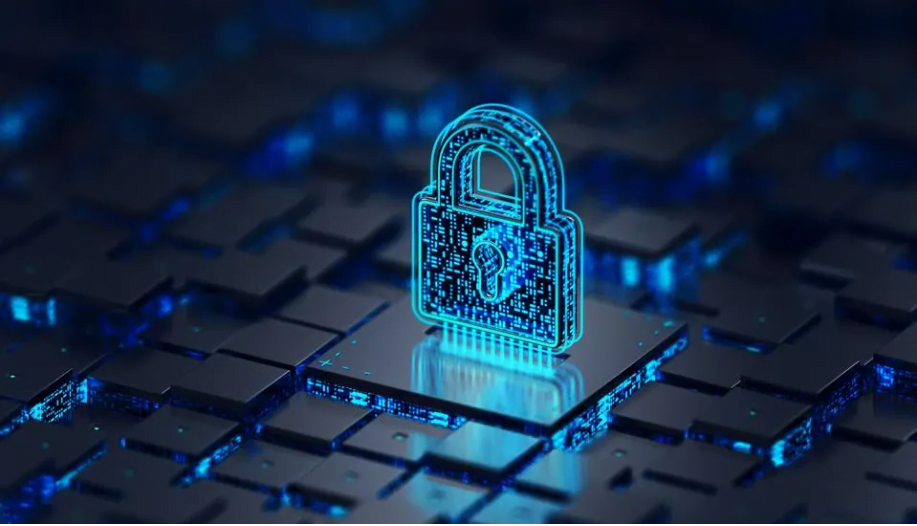Quantum computing is a double-edged sword. It promises to revolutionize problem-solving, but it also threatens to dismantle the digital fortresses we’ve built. The battle for cybersecurity is far from over.
The world of cybersecurity is in a constant arms race. As attackers develop ever-more sophisticated methods, defenders scramble to fortify their defenses. Now, a new wrinkle is emerging on the horizon: Quantum Computing. This revolutionary technology has the potential to shatter the very foundation of modern encryption, leaving our data vulnerable. But is quantum computing all doom and gloom for cybersecurity? Not necessarily. Let’s delve into the potential impact of quantum computers on both breaking and strengthening encryption methods.
Breaking Through the Walls: How Quantum Computing Could Weaken Encryption
Quantum computing poses a significant threat to encryption systems, particularly those based on asymmetric algorithms, which rely on mathematical problems that quantum computers can solve more efficiently than classical computers. Here’s how quantum computing could weaken encryption:
Asymmetric Encryption Vulnerabilities
- Shor’s Algorithm: This quantum algorithm can factor large integers and compute discrete logarithms exponentially faster than the best-known classical algorithms. As a result, widely used asymmetric cryptographic systems, such as RSA and ECC (Elliptic Curve Cryptography), could be broken by sufficiently powerful quantum computers. This would allow attackers to derive private keys from public keys, compromising the security of encrypted communications and digital signatures.
- Capture Now, Crack Later: A significant concern is that sensitive data encrypted today could be intercepted and stored by adversaries, who may decrypt it in the future once quantum computers become available. This scenario poses a grave risk, especially for long-term data protection in critical sectors like finance and healthcare.
Symmetric Encryption Weakening
- Grover’s Algorithm: While symmetric encryption (e.g., AES) is not as severely affected as asymmetric encryption, quantum computing does present a threat. Grover’s algorithm allows for a quadratic speedup in brute-force attacks, effectively halving the security level of symmetric keys. For example, a 128-bit key would offer security comparable to a 64-bit key against quantum attacks. However, this is still considered relatively secure, especially if larger key sizes are used (e.g., moving to 256-bit keys) to mitigate the threat.

The Looming Threat: What’s at Stake?
If quantum computers can break current encryption standards, the consequences could be dire. Sensitive data like financial records, medical information, and government secrets could be exposed. Online communication could be intercepted, and digital signatures could be forged. The entire foundation of trust in the digital world could be shaken. The rise of quantum computing presents a significant and multifaceted threat to cybersecurity, particularly regarding the security of current encryption methods. Here’s an overview of the key issues at stake:
- Breaking Asymmetric Encryption: Quantum computers could render many widely used asymmetric encryption algorithms, such as RSA and ECC, obsolete. Shor’s algorithm enables quantum computers to factor large integers and compute discrete logarithms exponentially faster than classical computers, which could allow attackers to decrypt sensitive data that relies on these cryptographic methods. Experts predict that within the next 15 years, quantum computers may be capable of breaking RSA-2048 encryption within a day, posing a severe risk to data security across industries
- Harvest Now, Decrypt Later (HNDL): This strategy involves cybercriminals collecting encrypted data today with the expectation that they can decrypt it in the future when quantum computing technology matures. A Deloitte poll indicated that over half of surveyed professionals believe their organizations are at risk for such attacks, which could affect various sectors, including finance and government. HNDL attacks pose a critical threat to sensitive data, as adversaries can stockpile encrypted information today with the intent to decrypt it once quantum computing capabilities mature.
- Vulnerability of Blockchain Technology: Quantum computing could also threaten blockchain systems, which rely on public-key cryptography for security. If quantum computers can derive private keys from public keys, the integrity of cryptocurrencies and smart contracts could be at risk. This vulnerability could affect a significant portion of digital assets, as many cryptocurrencies currently depend on cryptographic methods that quantum computers could potentially break.
But Wait, There’s More: Quantum Cryptography – A Potential Savior
The same principles that make quantum computers a threat to encryption also hold the key to creating a new generation of unbreakable encryption methods. Quantum Key Distribution (QKD) utilizes the unique properties of quantum mechanics to distribute encryption keys that are provably secure against even the most powerful quantum computers.
The Race is On: Preparing for the Quantum Future
The development of both quantum computing and quantum-resistant cryptography is still in its early stages. However, cybersecurity experts are already working on transitioning to post-quantum cryptography (PQC) standards. This proactive approach is crucial to ensure a smooth and secure transition to a quantum future.

What You Can Do Today
While the widespread adoption of quantum computers might be years away, it’s never too early to start preparing. Here are some steps you can take:
- Stay Informed: Keep yourself updated on the latest developments in quantum computing and post-quantum cryptography.
- Support Research: Advocate for continued research and development in PQC standards.
- Choose Providers with Quantum Readiness: Look for cybersecurity solutions that are already incorporating PQC algorithms.
Quantum computing presents a unique challenge for cybersecurity. However, it’s important to remember that it’s not an insurmountable obstacle. By embracing innovation and taking proactive steps, we can ensure that the digital world remains a secure space, even in the quantum age.
Myceliumweb.com strives to provide its readers with the latest advancements in technology and their impact on our lives. Stay tuned for further updates on the fascinating world of quantum computing and its implications for cybersecurity!















